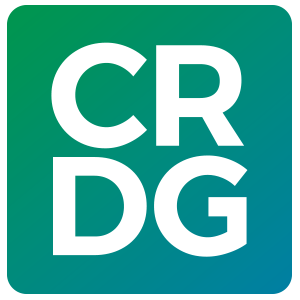
Project Description
From March 2003 through February 2007, CRDG conducted a National Science Foundation project (No. REC0228158; Paul R. Brandon, Principal Investigator, Donald B. Young, co-Principal Investigator, and Alice K. Taum, Project Manager) to prepare for an eventual randomized experiment (a) by developing an alternative to a traditional two-week professional development (PD) institute that is required of all teachers who want to implement a middle-school, inquiry-based science program in their classrooms and (b) by preparing and validating the instrumentation for the randomized experiment. The project focused on the Foundational Approaches in Science Teaching (FAST) program, an award-winning, constructivist, inquiry-based, three-year middle-school science program that has been used in 36 states and 10 foreign countries. An alternative version of PD for the first year of FAST (Physical Science, Ecology, and Relational Studies), including a one-week teacher institute; a one-semester on line course; and a multimedia DVD-ROM, with text, still photos, videos of FAST teachers, and narrated animations, was developed. Four data collection instruments and procedures were developed, including (a) a classroom observation protocol for measuring the quality of teacher questioning; (b) a teacher questionnaire for collecting self-reports on implementation, program context, and teacher demographics; (c) a method for collecting observation data and judging teacher quality of implementation; and (d) a student assessment suite that includes a student attitude survey, student multiple-choice and extended-response test, and student performance assessment. Observation validation data were collected through videotaping 105 classroom periods of 19 inquiry-based teachers on four of the Hawaiian islands. Questionnaire validation data were collected on a sample of 156 inquiry-based teachers nationwide, and quality-study validation data were collected from a subset of the videotaped teachers. Assessment validation data were collected on 428 children in 10 classrooms. Evidence from validity studies supported the validity of data collected with the instruments in several ways.
Presentations
- Comparing the Effects of Two Versions of Professional Development on Science Curriculum Implementation and Scaling-Up (AERA 2005)
 Development and Validation of an Inquiry Science Student Achievement and Additudinal Suite (AEA 2005)
Development and Validation of an Inquiry Science Student Achievement and Additudinal Suite (AEA 2005)
 The Development of the Inquiry Science Observation Code Sheet (AEA 2005)
The Development of the Inquiry Science Observation Code Sheet (AEA 2005)
 Development and Validation of the Inquiry Science Teacher Log and the Inquiry Science Teacher Questionnaire (AEA 2005)
Development and Validation of the Inquiry Science Teacher Log and the Inquiry Science Teacher Questionnaire (AEA 2005)
 The Iterative Process of Developing an Inquiry Science Classroom Observation Protocol (AERA 2006)
The Iterative Process of Developing an Inquiry Science Classroom Observation Protocol (AERA 2006)
 The Relationships among Middle-school Inquiry-based Science Student Achievement Measures: The Results of Structural Equation Modeling Analyses (AEA 2006)
The Relationships among Middle-school Inquiry-based Science Student Achievement Measures: The Results of Structural Equation Modeling Analyses (AEA 2006)
 Development, Validation, and Trial of a Method for Judging the Quality of Using Questioning Strategies in a Middle-school Inquiry Science Program (AERA 2007)
Development, Validation, and Trial of a Method for Judging the Quality of Using Questioning Strategies in a Middle-school Inquiry Science Program (AERA 2007)
Reports
 Phase I Study of FAST Implementation, Outcomes, and Scaling Up: Final Report (2007) (executive summary)
Phase I Study of FAST Implementation, Outcomes, and Scaling Up: Final Report (2007) (executive summary)
 Phase I Study of FAST Implementation, Outcomes, and Scaling Up: Final Report (2007) (body of the report)
Phase I Study of FAST Implementation, Outcomes, and Scaling Up: Final Report (2007) (body of the report)
 Phase I Study of FAST Implementation, Outcomes, and Scaling Up: Final Report (2007) (report appendixes)
Phase I Study of FAST Implementation, Outcomes, and Scaling Up: Final Report (2007) (report appendixes)




